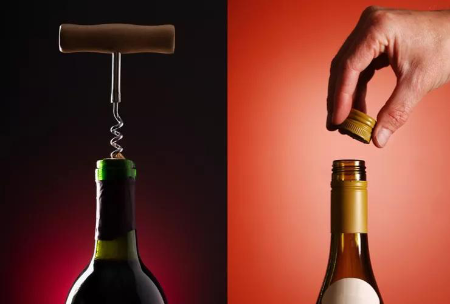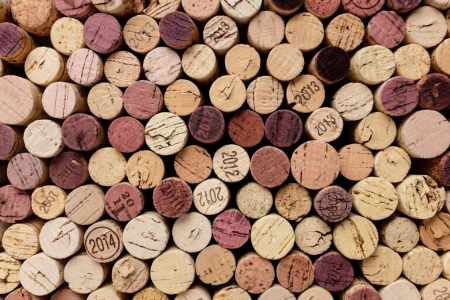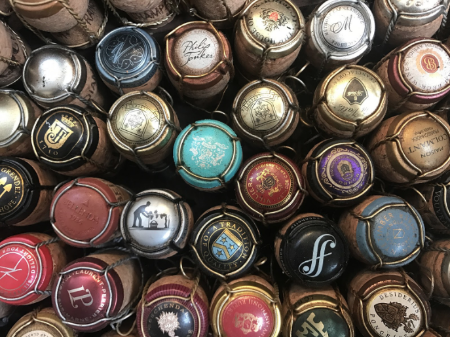The Debate: Cork vs Screw Cap
Both screw caps and cork stoppers have their advantages and disadvantages. The main question is which one is better?
Aging Potential and Wine Quality
Screw cap wine stoppers offer a significant advantage in preserving the freshness of wine compared to cork stoppers. Indeed, wines sealed with screw caps often exhibit a greater level of fruitiness and vibrancy.
However, certain wines require extended aging to be fully developed. The breathability of cork stoppers can play a role in this process, allowing for the gradual interaction of oxygen with the wine, which can contribute to the development of complex flavors and textures.
For wines intended for long-term cellaring, the choice between screw caps and cork stoppers may depend on individual preferences and the specific characteristics of the wine.
Environmental Impact
The cork harvesting process to make wine stoppers is sustainable and beneficial for cork oak trees, potentially extending their lifespan while providing economic opportunities for rural communities in Mediterranean regions. Moreover, it can easily be recycled as mulch or compost.
As for screw caps wine stoppers, their aluminum and plastic can be used in the making of new products.
Consumer Perception
The choice of wine closure can significantly influence consumer perceptions of quality. Traditional cork closures have long been associated with premium wines, but alternative options like screw caps and synthetic corks are gaining acceptance due to their convenience and ability to preserve wine effectively.
A study conducted by the International Journal of Wine Business Research found that consumers are willing to pay the same prices for red and white wines sealed with screw caps compared to those sealed with cork.
While this research suggests that consumers are increasingly open to alternative wine stoppers, the perception of tradition and prestige associated with cork closures persists. Wineries that use cork may be viewed as more traditional or high-end, while those using screw caps might be seen as more modern or accessible.
Conclusion
The debate between corks and screw caps is all about how effective they are and how people perceive them. Corks have been used in winemaking for ages and can enhance the wine's taste. On the flip side, screw caps are all about convenience and preserving the wine’s bouquet.
At The Wine Caverns, both types of wine stoppers are available for your different occasions. No matter where your preference lies, The Wine Caverns have all you may need !






















